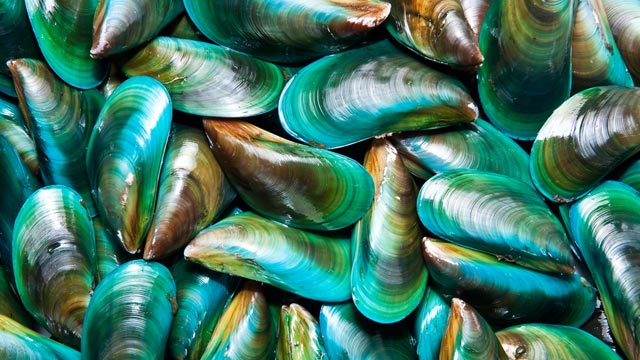SUMMARY
This is AI generated summarization, which may have errors. For context, always refer to the full article.

BOSTON, USA – Mussels secrete a powerful adhesive to hold tight on rocks swept by violent waves — and a synthetic version could prove critical for surgery and cancer treatment, researchers said Saturday, February 16.
Scientists have created materials that mimic the mussels’ sticky proteins and could have medical applications such as sealants for fetal membrane repair, self-setting antibacterial hydrogels and polymers for to deliver cancer drugs and destroy cancer cells.
“An inland stream with water moving at only one meter (yard) per second is very hard to stand in,” said University of Washington, Seattle biologist Emily Carrington, who studies the tiny mollusks.
“Imagine something going 10 times that speed — over your whole body.”
That’s what mussels withstand — and more — as they cling to rocks, grasses and other materials under water.
Carrington said water traveling 10 meters per second would be equivalent to winds blowing 600 miles (965 kilometers) per hour.
“A couple of them clinging to a rock can support the weight of a fully grown person” said Herbert Waite, a molecular biologist from the University of California.
They spoke on the sidelines of the annual American Association for the Advancement of Science conference in Boston.
The “glue” comes from the mussel’s foot, called the byssus, which can cling to almost any surface — wet, dry, organic or inorganic.
Phillip Messersmith, professor of biomedical engineering at Northwestern University, is one of the researchers looking to reproduce the sticking power in a synthetic substance.
He and his team have developed a version that is equally water resistant, and could help close internal wounds, among other medical applications.
“The repair or reconstruction of tissues in the human body, where water is ubiquitous and its presence represents a challenge for achieving desired outcomes,” is an especially compelling potential use for the adhesive, Messersmith said in a statement.
For instance, the substance could prove useful in repairing fetal membranes that have prematurely ruptured, a condition that is difficult to treat and can lead to miscarriage, premature births and other serious complications.
Messersmith and his team are collaborating with researchers in Europe on clinical trials.
Another team is working to develop synthetic versions of the mussel’s adhesive that could help repair broken bones or teeth.
“These glues are tolerated by the body and are water-resistant and that is perfect for making repairs inside the body,” he said.
In addition to the medical applications, Carrington’s team uses the mussel “glue” as an indicator of changes in the environment — especially of warming.
Laboratory experiments showed that mussels are significantly less able hold on when the temperature rises.
The resistance of these fibers, strongest in waters 50 to 65 degrees Fahrenheit (10 to 18 Celsius), diminishes by 60 percent when the water reaches 15 degrees Fahrenheit above typical summer temperatures in the mussels’ place of origin.
Researchers had already observed that the mussel’s foot weakened at the end of summer and in early fall, just when hurricane season reaches full force, before regaining strength in the colder seasons.
“We’re trying to learn what causes this seasonal weakening — is it related to warmer weather, their spawning cycle or something else?” Carrington told reporters.
“And now we want to know if increased environmental fluctuations will help put them over the edge.” – Rappler.com
Mussels from Shutterstock
Add a comment
How does this make you feel?





There are no comments yet. Add your comment to start the conversation.